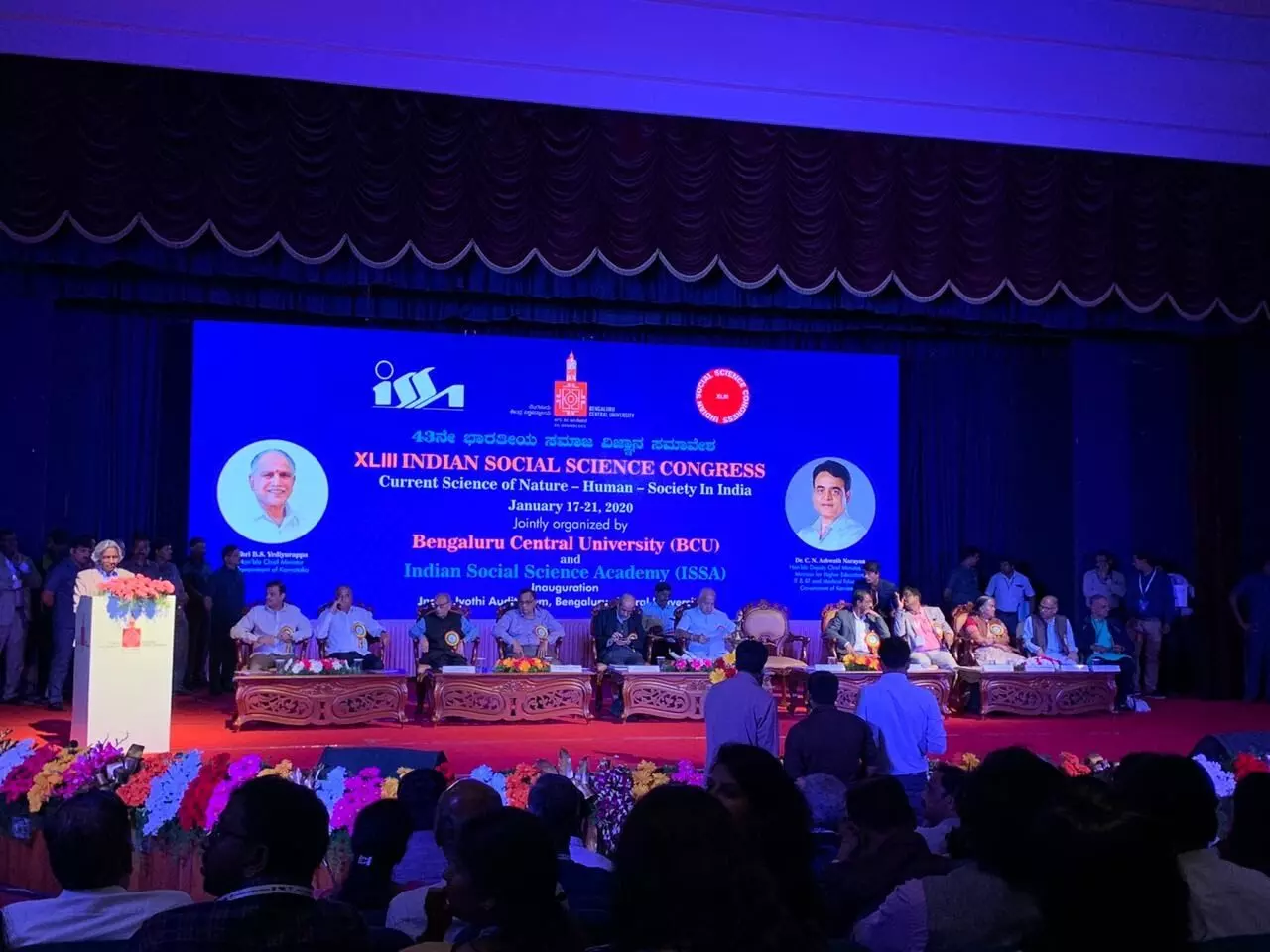Science for society
By recognising its scientific roots and sensitising it among citizens, India can move away from consumerism to citizenship culture

Image courtesy: Indian Social Science Academy
The pursuit of scientific research is to create knowledge. Knowledge is to help people lead a meaningful, decent human life with dignity and joy. Knowledge is meant to reduce the human sufferings and maximise wellbeing, happiness and peace. Hence, it is perceived that science is for society and, thereby, all sciences are called social science. If science is not useful to society it is not a science. With this perspective, a group of scholars are continuously working over the last 49 years under the banner of Indian Social Science Academy. They argue that scientists have to analyse the nature of human-society relationship holistically, and suggest ways and means to maintain harmony between nature and society. Since its inception, this academy has argued that Indian science has more fundamental principles than the science which we borrowed from the West.
Indian science is broader and more inclusive than the science of the West. Unfortunately, the Indian academic community has been oriented towards the Western science consciousness and, consequently, Indian science has been buried fathom deep. This has led to the notion that India does not have science and whatever practice it adopts is unscientific. To break this myth, the new science academy was formed and it has been reframed as a social science academy, breaking the barrier of all classifications including natural science, social science, health science, biological science, and so on and so forth. This academy does not believe that research is done only in academic institutions. It is being done by farmers, skilled workers, and traders in their own pursuits.
It conducts its annual congress in higher learning institutions with a focal theme every year. This year, it conducted its annual convention in Bharathidasan University, Tiruchirappalli, with the focal theme ‘75 years of Swaraj India’, aimed at taking stock of the achievements and failures. It has been a conscious introspection of where we have performed well, where we couldn’t and what to do? It is not a blame game but rather a soul-searching exercise. For the congress, the academy received more than 800 abstracts from all over the country in 28 thematic panels and 21 subject committees. Twenty-nine plenary speakers from different spectrum of knowledge delivered plenary lectures. This year, while inaugurating the congress on January 27, the Governor of Tamil Nadu, in the capacity of the chief guest, has put some fundamental questions before our scientists to work and move on.
India is in no way inferior to any civilisation in the world. It has its own science and technology. Monumental evidence lies before us and yet we have not identified the roots of our science and technology. Since we are oriented towards Western science, as if we did not have science, we have lost our roots. Furthermore, science has to work for the people and, if so, why has it not reached the major segments of society. In the 75 years of democratic governance in India, who got substantial benefits from the state, and which segments haven’t received the benefits they deserved? To reach out to the unreached, what has to be done? When rocket science attracts policymakers, why has sanitary science not received due attention? Has our science reached the common man? Majority of the people, instead of using scientific values, practice community values for their day-to-day life.
In the development process of any nation, people’s participation is the key factor. But in India, people are not the participants of the development process. They are, instead, active beneficiaries who receive the benefits of the government. In that process, people have been oriented towards forgetting the citizens’ role in society. Similarly, people have to play an active role in governance in a democracy but, in reality, they are hardly involved in any governance activities beyond voting. In this process, substantial segments of Indian society are oriented towards living as beneficiaries, and hold voter consciousness instead of citizen consciousness. The congress has dwelt at length upon all the above questions.
The research discourses were on and around the failures of the state and the market, and the consequences of the same. The onus has been fixed on society. The limitless growth and profit have ravaged nature and resulted in an exploitative culture which has led to inequality. Yet the gravity of the problem has not been realised by the policy community, as indicated by the researchers. What is the way out was also in the discourse. The need of the hour is to take out the people from the consumerist culture and direct them towards citizenship culture. Science education for the people is an immediate and urgent need. Overall consciousness of the people has to be changed. Socially conscious and relevant research have to be conducted in higher learning institutions. The new opportunity provided to the higher learning institutions to connect with the community through Unnat Bharat Abhiyan (UBA 2.0) can be used effectively to solve many of the ills prevailing in society. Science and science education have to work for the poor. Furthermore, entire deliberations and discourses should be done in vernacular languages, and not in English; the earliest we move from this practice the better it will be. All the above have been the emerging ideas from the Indian Social Science Congress, which need reiteration at different levels. Beyond the celebration of 75 years of independence, the congress has set the agenda for future action for the academics and higher learning institutions.
The writer is a former Professor and Rajiv Gandhi Chair for Panchayati Raj Studies, Gandhigram Rural Institute. Views expressed are personal




